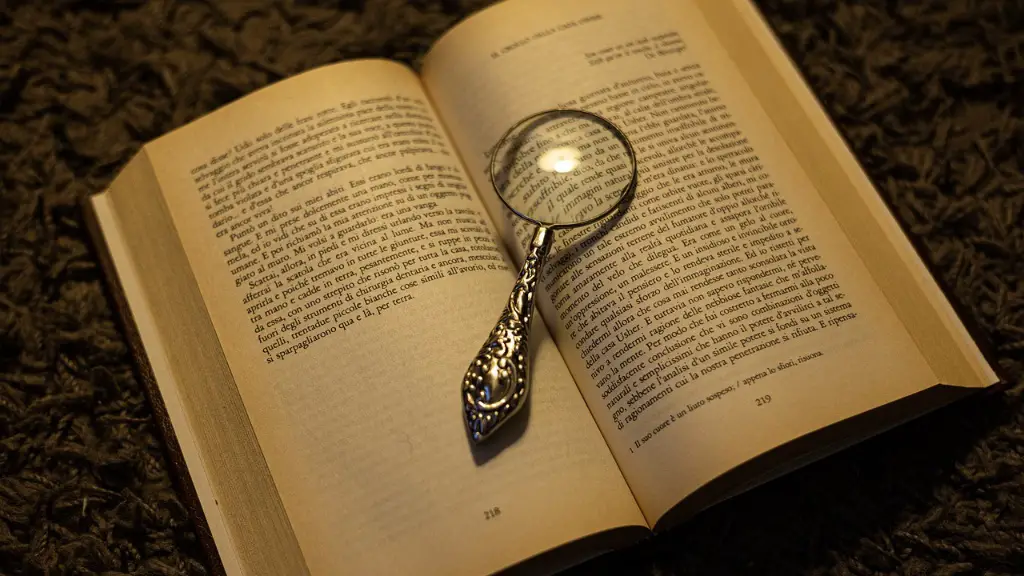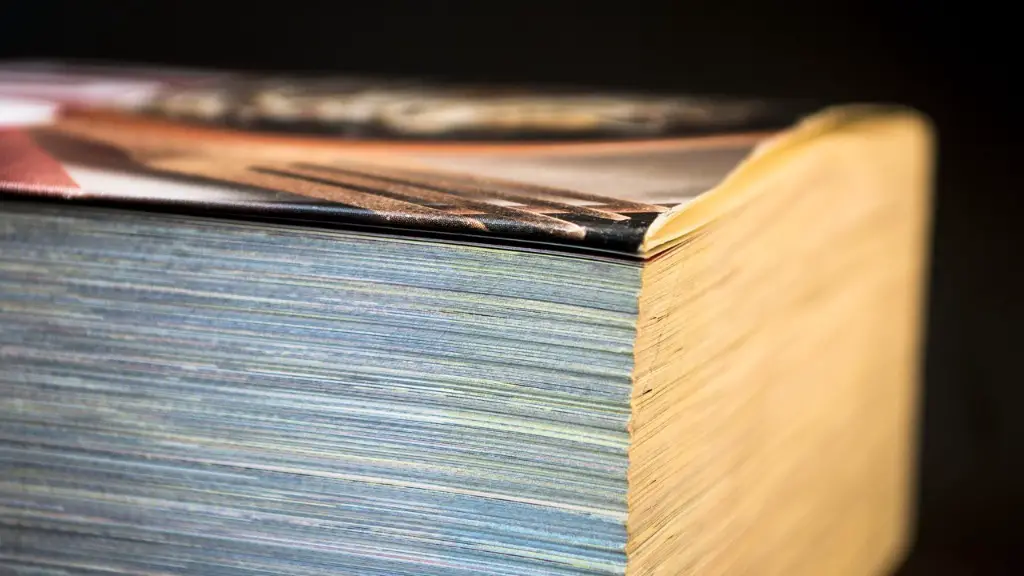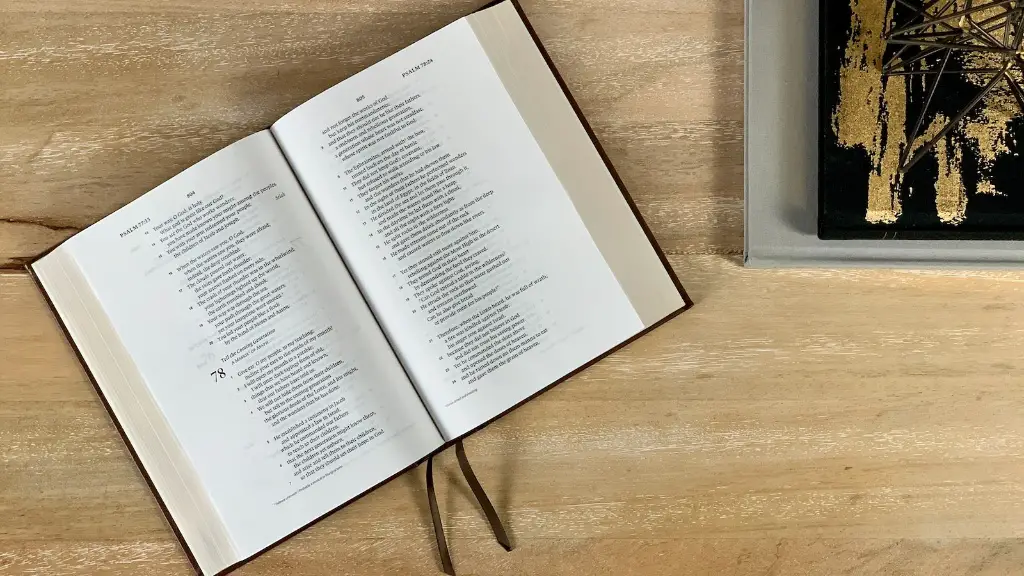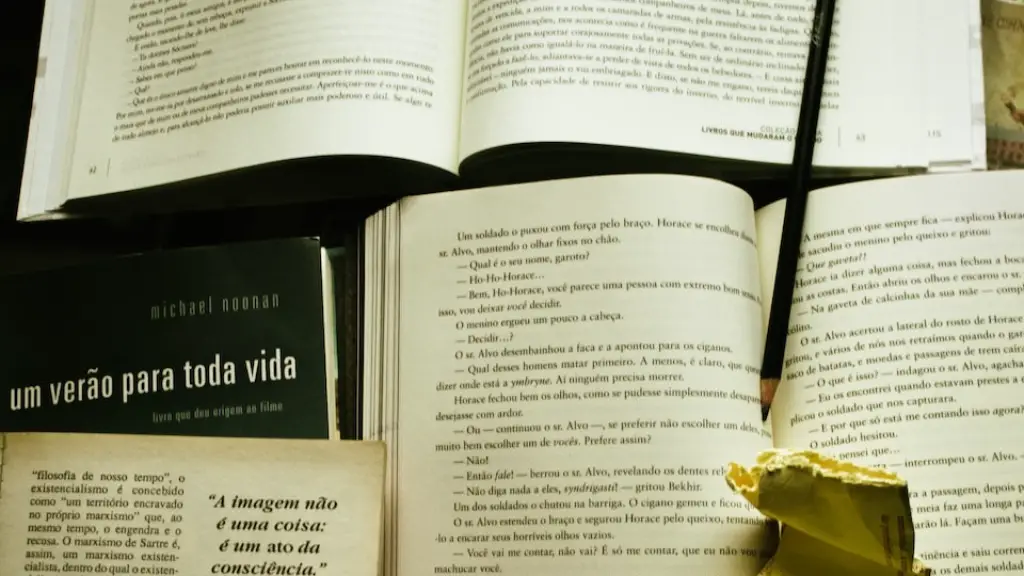I love poetry because it allows me to express my feelings in a way that I can’t express in normal conversation. It allows me to delve deeply into my emotions and it gives me the opportunity to explore my thoughts and feelings in a way that words alone can’t capture. Poetry gives me the opportunity to be creative and to work with language in a way that is both fun and enriching. It’s like a kind of mental playground that I can explore and find new ways of expressing myself.
What’s particularly interesting about poetry is the way it can take a single idea and expand it in a number of different directions – exploring the same idea from different angles and using metaphor and simile to really draw out and deepen our understanding of the topic. Poetry also helps to make abstract concepts more accessible by presenting them in a form that is both accessible and enjoyable to work through.
Working with poetry also helps to improve our understanding of grammar and sentence structure. Poetry is composed only of words so it requires us to be mindful of the impact of every single word and how it contributes to the overall effect. It also encourages us to consider how different combinations of words can create different meanings – something that I find particularly interesting.
Moreover, poets often challenge the status quo by presenting alternative perspectives on topics that we might otherwise take for granted. They often do this in clever and inventive ways and their work can often be seen as a form of subversive commentary. Poetry can also be used to make compelling political points, to tell stories that might otherwise not be heard and to create powerful emotions in the reader.
Finally, poetry can be incredibly powerful. It can be used to move people to action, to evoke powerful emotions and to inspire individuals to dream and aspire to greater things. The power of the spoken and written word can never be understated and when used carefully and purposefully it can really have a profound and lasting impact on individuals. Poetry embraces this power, giving us the opportunity to both challenge and be inspired in equal measure.
Varieties of Poetic Form
Poetry takes many forms and this is one of the things that makes it so interesting and enjoyable to write and explore. There are many different forms of poetry and each one has it’s own unique style and approach. Some of the most popular forms are sonnets, haikus and free verse. Each one of these forms has it’s own style and approach and it can be incredibly rewarding to explore them and try your hand at writing in each of their styles. This can be a great way to grow as a poet and to expand your understanding of the craft.
This is only scratching the surface however, as there are many more forms and structures that can be used to create powerful and poetic works. From traditional forms such as odes and epics to more modern forms such as rap and spoken word, there are endless opportunities for experimentation and exploration. Even for those who have been writing poetry for a long time there are always still opportunities to explore and try new things.
The possibilities are endless, and this is part of the beauty of poetry – it can take so many different forms. Exploring the many styles and forms available can be a great way to hone your skills and it can also be very rewarding in its own right.
Creating Powerful Emotional Resonance in Poetry
Poets often strive to create powerful emotional resonance in their work and this is one of the most rewarding aspects of working with poetry. One of the keys to creating a powerful emotional resonance is to be honest and genuine in your writing. Speak from the heart and be honest in your exploration of the topic you are writing about. This can be the difference between a piece of writing that reads as flat and un-inspiring and something that truly moves and touches the reader.
It is also important to consider the language you are using. The words you use should be chosen carefully and should be used to convey the emotions you are exploring. The use of metaphors and similes can be incredibly powerful in poetry and they can be used to draw out an idea in a way that words alone can’t.
Finally, it’s important to consider the structure of your poem. This can also be used to create powerful emotional resonances in your writing. For example, a villanelle is a poetic form that is composed of a repeating set of lines and refrains that can be used to create a powerful sense of urgency and intensity in your piece. Similarly, metrics and rhythm can also be very powerful tools when used to create a particular mood in your work.
Exploring New Topics and Themes in Poetry
Poetry can be a great way to explore new topics and themes that you wouldn’t normally explore in other forms of writing. This is something that I find particularly exciting – the opportunity to really delve into a subject and to explore it from a variety of different angles. Poetry often allows you to explore ideas and concepts in a way that is much more nuanced and subtle than other forms of writing.
It’s also important to remember that poetry doesn’t have to be intense and sombre, it can also be light-hearted and humorous. Writing humorous poetry can be a great way to explore complex topics in a new and innovative way and it can also be incredibly rewarding.
Exploring new topics and themes can also be a great way to learn new skills and to gain insights into different areas. Working with poetry can be like a kind of mental treasure hunt – where you hunt down the right words and phrases that can help to express your ideas in a more eloquent manner. This can be a great way to hone your craft and to grow as a poet.
The Challenges of Poetry Writing
Writing poetry can be a challenging and rewarding experience. As with any creative endeavour, it’s important to be open minded and to be willing to experiment and explore. When faced with a blank page it can be difficult to know where to begin and this is why it’s important to be patient and to take things one step at a time. Eventually, as you become more familiar with the craft, you will begin to feel more confident and you will find it easier to explore new topics and create powerful and resonant pieces of work.
Pushing the boundaries of what you think is possible is also important in poetry. Don’t be afraid to try something new and to explore ideas outside of your comfort zone. Even if the outcome isn’t entirely successful, you can always learn from the experience and this is all part of the creative process.
Poetry writing can also be hard work and it requires dedication and perseverance. It’s not always easy, but when you have created a piece of work that you are truly proud of it can be incredibly rewarding. Dedicating yourself to this art form is an incredibly rewarding experience and it is something that I would highly recommend.
Poetry Reading and Appreciation
Reading and appreciating poetry can be just as rewarding as writing it. This is something that I find particularly enjoyable – the chance to explore the work of other poets and to read and interpret their work in my own way. Seeing how other poets have tackled topics and explored ideas can be incredibly enlightening and inspiring.
Poetry reading can also be a great way to develop your own understanding of the language. Reading poetry can be a great way to become more familiar with the nuances of the language and to learn new and interesting words. This can be a great way to expand your vocabulary and to enrich your writing.
At the end of the day, I love poetry for all of its possibilities. It’s a form of writing that can be both fun and rewarding, and it can be used for a variety of different purposes. Whether you are looking to explore new topics and ideas, to hone your creative skills or simply to enjoy the creative process, poetry can offer something for everyone.





